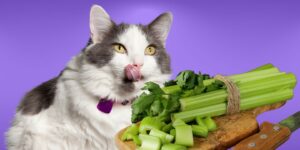No, cats should not eat onions. Onions are toxic to cats and can cause a range of health problems, including anemia and organ damage. It's essential to ensure that your cat gets proper nutrition and avoids feeding them human foods that may be harmful. In this article, we'll explore why onions are dangerous for cats and discuss ways to prevent your feline friend from ingesting them.
Importance of Cat Nutrition
Cats require a specifically tailored diet that meets all their nutritional needs. Feeding them human foods may not provide the essential nutrients they need and can lead to health problems.
Risks of Feeding Human Foods to Cats
Some human foods, like onions, can be toxic to cats and cause severe health issues. It's crucial to be aware of the potential dangers of feeding your cat something other than their recommended cat food.
The Toxic Components in Onions
Onions contain two harmful substances that make them toxic to cats: N-propyl disulfide and thiosulphate. Both of these compounds can cause significant damage to a cat's body when ingested.
N-propyl Disulfide and its Effects on Cats
N-propyl disulfide interferes with the ability of red blood cells to carry oxygen, leading to the destruction of the cells and causing anemia in cats. Anemia can result in various symptoms, such as weakness, vomiting, and difficulty breathing.
Thiosulphate and Oxidative Damage
Thiosulphate is another toxic compound found in onions that can cause oxidative damage to a cat's red blood cells, which can also lead to anemia.
Recognizing Symptoms of Onion Poisoning in Cats
If your cat has ingested onions, they may display various physical symptoms and behavioral changes. It's essential to recognize these signs to seek prompt veterinary care.
Physical Symptoms
- Weakness
- Lethargy
- Pale gums
- Rapid breathing or difficulty breathing
- Vomiting
- Diarrhea
Behavioral Changes
- Loss of appetite
- Distressed or agitated behavior
- Hiding or isolating themselves
Treatment and Management of Onion Poisoning
If your cat has consumed onions, taking immediate action and seeking veterinary intervention is crucial.
Immediate Actions to Take
- Remove any remaining onions from your cat's reach
- Keep your cat calm and comfortable
- Contact your veterinarian for guidance
Veterinary Interventions
Your veterinarian may perform blood tests to assess the severity of the issue and may provide supportive care, including fluids and medications to reduce the damage caused by the toxins.
Long-term Care and Recovery
Once your cat has received treatment for onion poisoning, it's crucial to keep a close eye on their health, provide them with optimal nutrition, and ensure they don't ingest onions again.
Preventing Onion Consumption in Cats
Taking preventive measures to avoid accidental ingestion of onions by cats is essential for their health and wellbeing.
Safe Alternatives to Onions
Offer cat-specific treats or approved fruits and vegetables, such as cooked pumpkin or green beans, as a safe alternative to onions.
Cat-proofing Your Kitchen
Keep onions and other toxic foods out of your cat's reach by storing them securely in cupboards or using childproof locks on cabinets.
Educating Family Members and Guests
Ensure everyone in your household, including guests, understands the dangers of onions and other toxic foods for cats, and is aware of the precautions necessary to prevent accidents.
Other Toxic Foods for Cats
Aside from onions, other toxic foods that cats should avoid include:
- Garlic
- Chocolate
- Raisins and grapes
Conclusion
Ensuring your cat maintains a well-balanced, cat-specific diet is essential for their overall health. Preventing your cat from consuming toxic foods like onions, garlic, and chocolate can help protect them from severe health problems. Always consult with your veterinarian if you are unsure about feeding your cat specific foods, and seek veterinary care immediately if you suspect they have ingested something harmful.











